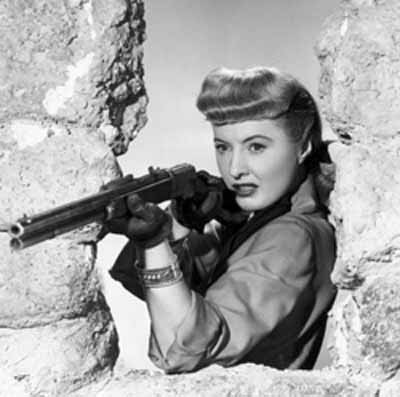Berry busy, to where I'm still just catching up with these things. In the new issue of Stop Smiling (The Expat Issue) --which features
a sweet interview with Daft Punk about
Electroma and why they love LA-- I have an essay about actress Jean Seberg and the American Myth Machine (which apparently runs on blonde women).
And leftover from Paste, these capsule reviews:
 Ballad of Narayama dir. by Shohei Imamura
Ballad of Narayama dir. by Shohei Imamura“I am interested in the relationship of the lower part of the human body and the lower part of the social structure,” director Shohei Imamura famously stated and throughout his career, he constantly scratched at the polite veneer of Japanese society to reveal the animal half beneath: cruel, bloodlusty, base. Curiously, Imamura’s career began under reserved master Yasujiro Ozu, yet it also includes mentoring audacious modern director, Takahashi Miike. Splenetic and light-hearted in equal measure, Imamura’s titles mirror his subject matter: pornographers, prostitutes, killers, swine. But Ballad won Cannes prestigious Palmes d’Or in 1983 (he’s the only Japanese director to win the award twice) by taking a slightly different path. A carefully unfurling tale about how an isolated mountain village survives in its harsh climes by sending its eldest members to die on the highest peak, through Imamura’s eyes, we see how the inhabitants emulate the beasts around them, acting savagely yet remaining fraught and human.
 Wings/ The Ascent dir. by Larisa Shepitko
Wings/ The Ascent dir. by Larisa ShepitkoAt the vanguard of Soviet cinema after winning the Golden Bear at the Berlin Film Festival for her 1976 masterwork, The Ascent, who knows how high director Larisa Shepitko would have risen had she not been instantly killed in a car crash while scouting locations for her next film? Instead, her slim but compelling oeuvre fell into total disrepair. Censored at home, her films scarcely made it out during her lifetime, and none of them were released on DVD. And while only two of her four finished films are here, this two-disc set rescues Shepitko’s most resonant works.
Wings, from 1966, deftly sidesteps Soviet censors to steadfastly tell of a heroine war pilot who now struggles to adjust to peacetime. Dissatisfied with her lot as a teacher and mother, she drinks heavily, slowly consumed by a vainglorious but vanished past. For
The Ascent, Shepitko re-imagines two Russian soldiers in a Christ-Judas parable. Captured and tortured by the Nazis, one embraces his martyred fate while another will do anything to live, even turn traitor. Starkly told against a purgatorial white of snow, two of cinema’s most searing, soul-devastating stares reside here; we now have the chance to stare back.
 Before the Rain dir. Milcho Manchevski
Before the Rain dir. Milcho Manchevski“Time never dies, the circle is not round,” an Eastern Orthodox priest reminds his young ward in
Before the Rain, a 1994 movie that was the first feature film made in the newly carved-out country of Macedonia as the Kosovo violence reached a boiling point next door. The debut of Milcho Manchevski after a career in music videos (his award-winning video for Arrested Development’s “Tennessee” is included in the Criterion edition), this evocative 1994 film draws comparisons to
Pulp Fiction in that it too is told as a disjointed (yet still circular) triptych. Yet the spasmodic violence is never stylized nor ironic. A Macedonian priest shelters an Albanian girl, a London photo editor feels the ethnic conflict firsthand, and Alex, a war photographer, returns to his now-unfamiliar homeland. As the climax nears and the three stories entwine, Alex realizes what it means to be blind to this perpetuating cycle of violence.
 The Furies dir. by Anthony Mann
The Furies dir. by Anthony MannIn
A Personal Journey with Martin Scorsese Through American Movies, the director esteemed that of the four westerns director Anthony Mann made in 1950, only “
The Furies could have been a Greek tragedy.” With grace notes of
King Lear and Dostoevsky also present amid its sere landscape, go figure that when Criterion Collection adds its first ever western to their esteemed catalog, they opt for a most idiosyncratic entry. Rather than gunplay and granite-faced cowboys,
The Furies instead simmers with land rights, hostile business takeovers, and the crackling Electra complex between Stanwyck and Huston. Huston plays cattle baron T.C. Jeffords, while Stanwyck plays his daughter Vance. Alternately deemed a she-fox, unbridled philly, and herd of stampeding cattle, Vance is intent on inheriting the family land, the Furies, until her father brings home a new bride and hangs her paramour. It’s then that we learn the adage: “Hell hath no fury like Barbara Stanwyck scorned.”













